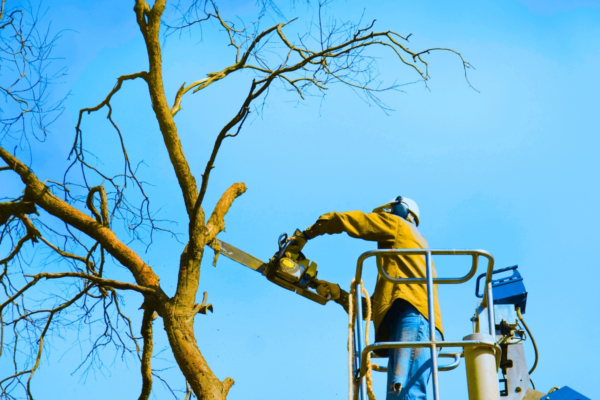
What is a Cash Out Refinance, and How Does a Refinance Work in Texas?

A cash-out refinance is a type of mortgage refinance that allows homeowners to tap into their home equity by taking out a new loan for more than the current balance on their mortgage.
In Texas, cash-out refinancing is subject to specific laws and regulations that are designed to protect homeowners and prevent them from overleveraging their homes. While the process can be complex, understanding the details of a cash-out refinance in Texas can help homeowners make informed decisions about their finances and access the equity in their homes to meet their financial goals.
What is a cash-out refinance?
As we touched on in the intro, a cash-out refinance is a type of refinance that allows homeowners to access the equity in their homes.
With a cash-out refinance, the homeowner takes out a new mortgage that is larger than the existing mortgage and receives the difference in cash. This money can be used for various purposes, such as home improvements, debt consolidation, or major expenses like education or medical bills. In Texas, a cash-out refinance, which also goes by the name Section 50(a)(6) loan, allows this extra cash in hand to be used at the borrower’s discretion.
It’s important to note that a refinance is not the same as a loan modification, which is a change made to the original terms of a mortgage loan. In a refinance, a new loan is used to pay off the existing one. The terms of the new loan are based on current market conditions and the borrower’s financial situation.
Local Cash-Outs
Every real estate market is unique – this is especially true of Texas with its restrictions on home equity and mortgages. Take advantage of our local knowledge to get your refinance done well.
Understanding the Cash Out Refinance in Texas
If you’re a Texas homeowner considering a cash-out refinance, it’s important to be aware of the state’s specific laws and regulations. Texas is one of the few states that has its own home equity laws, which are designed to protect homeowners from putting themselves in a sticky financial situation with their house.
Equity and Loan-to-Value Requirements
To start with, you need equity in your home to do a cash-out refinance— and at least 20% of it. Texas laws for Section 50(a)(6) loan caps the maximum loan-to-value (LTV) ratio that you can obtain for a primary residence at 80%. This means that the biggest mortgage you can receive is 80% of the total value of the property, even if you own it outright.
Let’s take a look at the math.
Let’s say that John owns his home outright, and it has an appraised value of $300,000. John wants to do a cash-out refinance to access some of the equity in his home to pay for his child’s college tuition.
Based on the LTV limit of 80% for a primary residence in Texas, John can borrow up to $240,000 ($300,000 x 0.8) in a cash-out refinance. If John wants to borrow more than that, he would have to pay down the balance of his existing mortgage or consider other options.
Now let’s consider the case of Susan, who still owes money on her mortgage. Susan’s home has an appraised value of $400,000, and she owes $200,000 on her current mortgage. Susan wants to do a cash-out refinance to pay for home renovations.
Based on the LTV limit of 80% for a primary residence in Texas, the maximum amount of cash that Susan can receive from the cash-out refinance is $120,000 ($400,000 x 0.8 – $200,000). This is because the total loan amount cannot exceed 80% of the appraised value of the home, minus the outstanding balance on the existing mortgage. Susan must retain at least 20% of her home’s equity.
Other Requirements
There are a few other laws and regulations that apply to mortgages, home equity loans, and cash-out refinancing in Texas that borrowers should be aware of:
- Primary residence: Cash-out refinancing and home equity loans are only available for primary residences in Texas. Second homes and investment properties are not eligible.
- One loan per year: Homeowners are limited to one cash-out refinance or home equity loan per year. This means that if a homeowner takes out a cash-out refinance or home equity loan in January, they cannot take out another one until the following January.
- One loan at a time: Homeowners can only have one cash-out refinance or home equity loan at a time. This means that if a homeowner already has a cash-out refinance or home equity loan, they cannot take out another one until the existing loan is paid off.
Have questions about whether or not you qualify? A local mortgage refinance lender can help!
Who can get a cash-out refinance?
Here’s a breakdown of who is and isn’t eligible to take advantage of a cash-out refinance.
| Scenario | Refinance | Home Equity Loan |
|---|---|---|
| Primary residences | Yes | Yes |
| Agricultural homesteads | Yes | Yes |
| More than 20% equity in the house | Yes | Yes |
| Second home | No | No |
| Investment property | No | No |
| Loan-to-value (LTV) ratio above 80% | No | No |
| Less than one year seasoning on previous cash-out refinance or home equity loan | No | No |
| Less than 20% equity in the house | No | No |
| Have taken out a cash-out refi or home equity loan in the past year | No | No |
| Already have an existing cash-out refinance or home equity loan | No | No |
In addition to this, the number of authorized lenders— lenders that are approved to make this kind of loan— has also grown. Credit unions, mortgage companies, bank subsidiaries, mortgage bankers, and savings and loan associations are now able to lend cash-out refinances.
Pros and Cons of a Cash-Out Refinance
Weighing the options? Here’s a brief breakdown of the major pros and cons to consider with a cash-out refinance.
| Advantages | Disadvantages |
|---|---|
| Mortgage interest could be tax-deductible for home improvements: If the money borrowed is used to build, buy, or substantially improve your home, you may qualify for tax deductions. However, you should double-check your eligibility with a tax advisor before making your decision. | Possibility of foreclosure if payments are not made: Like any loan in which you use your home as collateral, you could lose your home if you can’t make payments. |
| A cash-out refinance may give you a better rate than personal loans and other types of credit, like credit cards: Whether you’re taking out your loan to consolidate debt or to make home improvements, the interest rate on your cash-out refinance may be a favorable rate compared to other options. | Paying the cost of closing, including fees and other expenses: As with any refinance, you’ll have to pay closing costs, which in Texas are 2% of the total loan amount. Other costs associated with refinancing include survey and appraisal costs, title exam reports, title insurance premiums, and more. |
| Ability to refinance to obtain better interest rates or shorter loan terms: Refinancing can allow you to obtain financing with a better interest rate or a shorter term than what you have on your current home mortgage. |
Your Refinance Options
A cash-out refinance can be a valuable tool for homeowners in Texas who are looking to access the equity in their homes. However, it’s important to be aware of the state’s specific laws and regulations, such as the maximum loan-to-value ratio and restrictions on second homes and investment properties.
By understanding the process and working with a local lender, Texas homeowners can make informed decisions about whether a cash-out refinance is the right option for their individual situation.
Looking for a refinance?
Contact our team to learn how refinancing your mortgage can add more flexibility to your finances.

